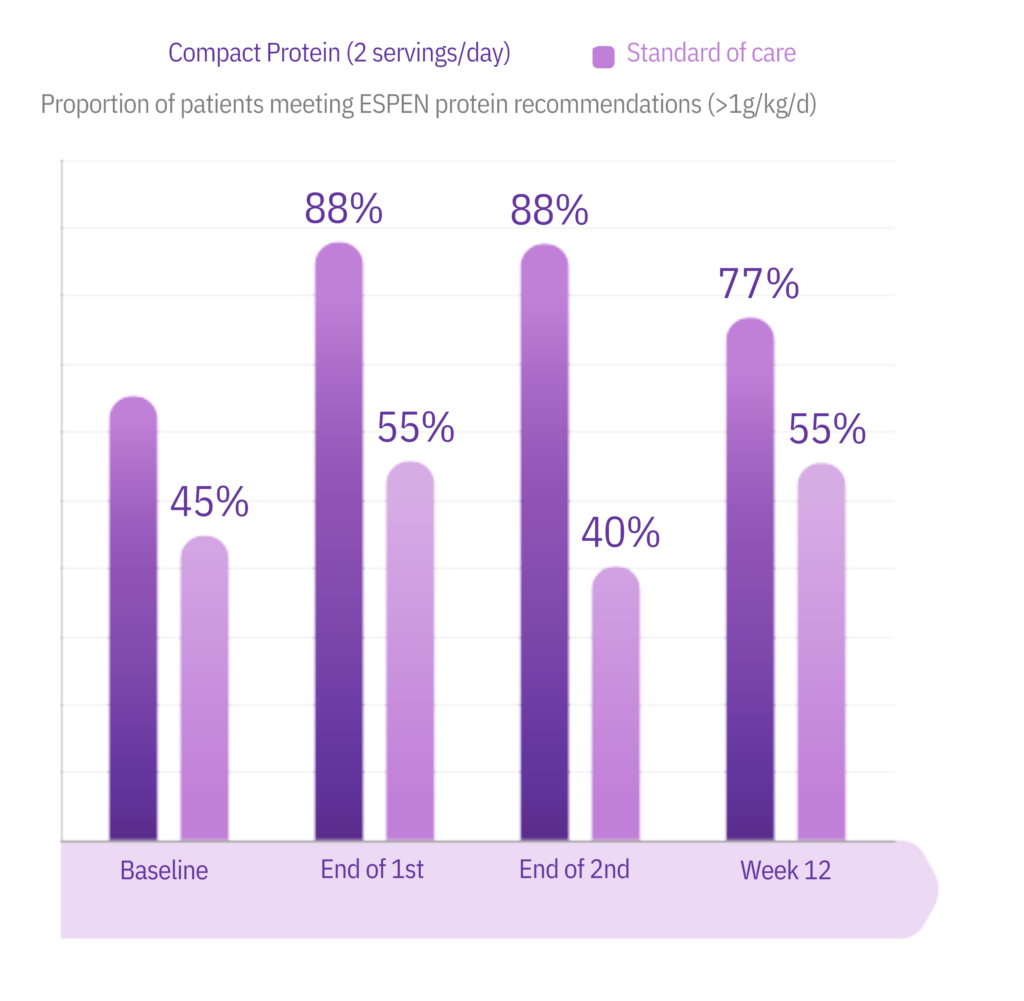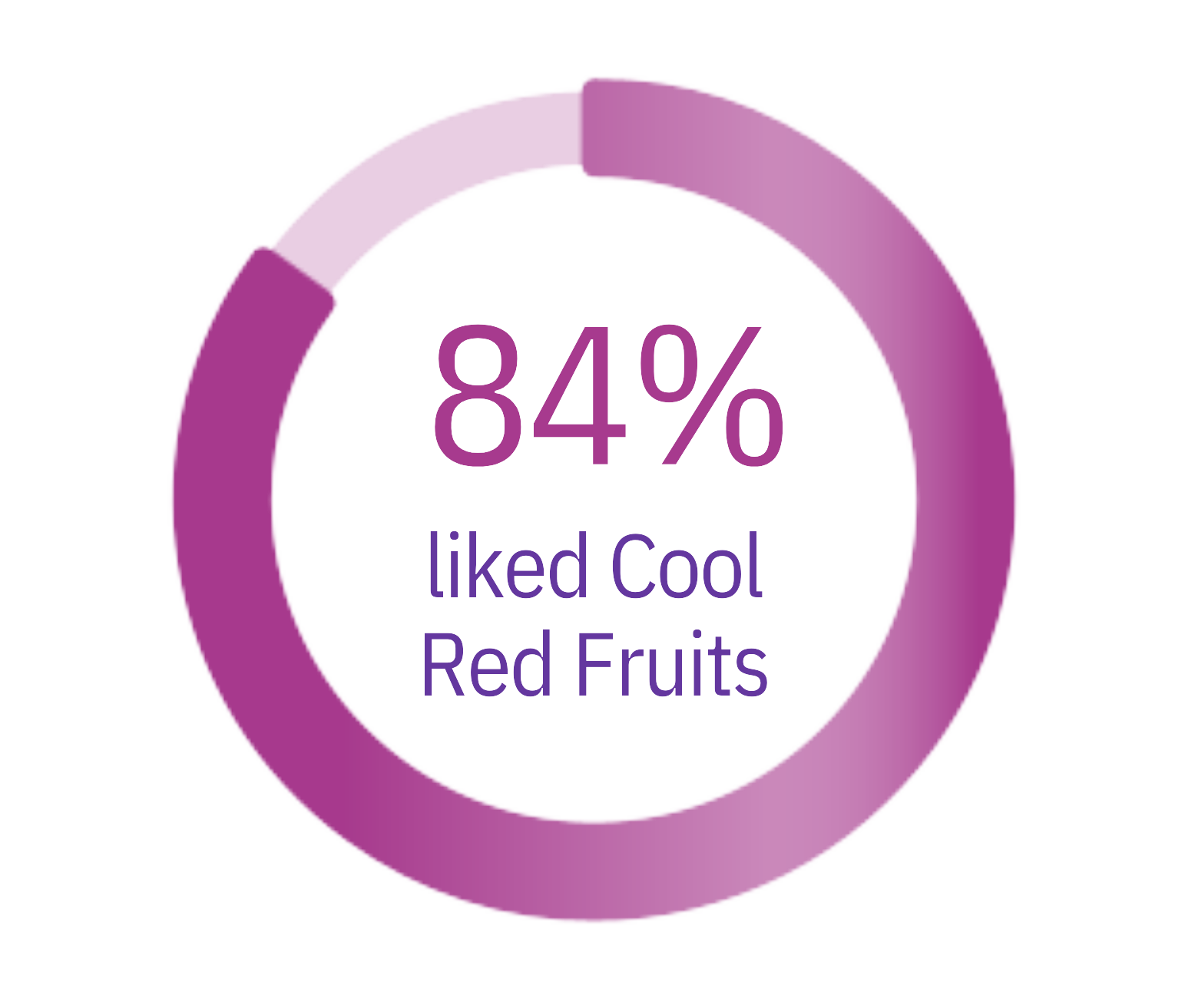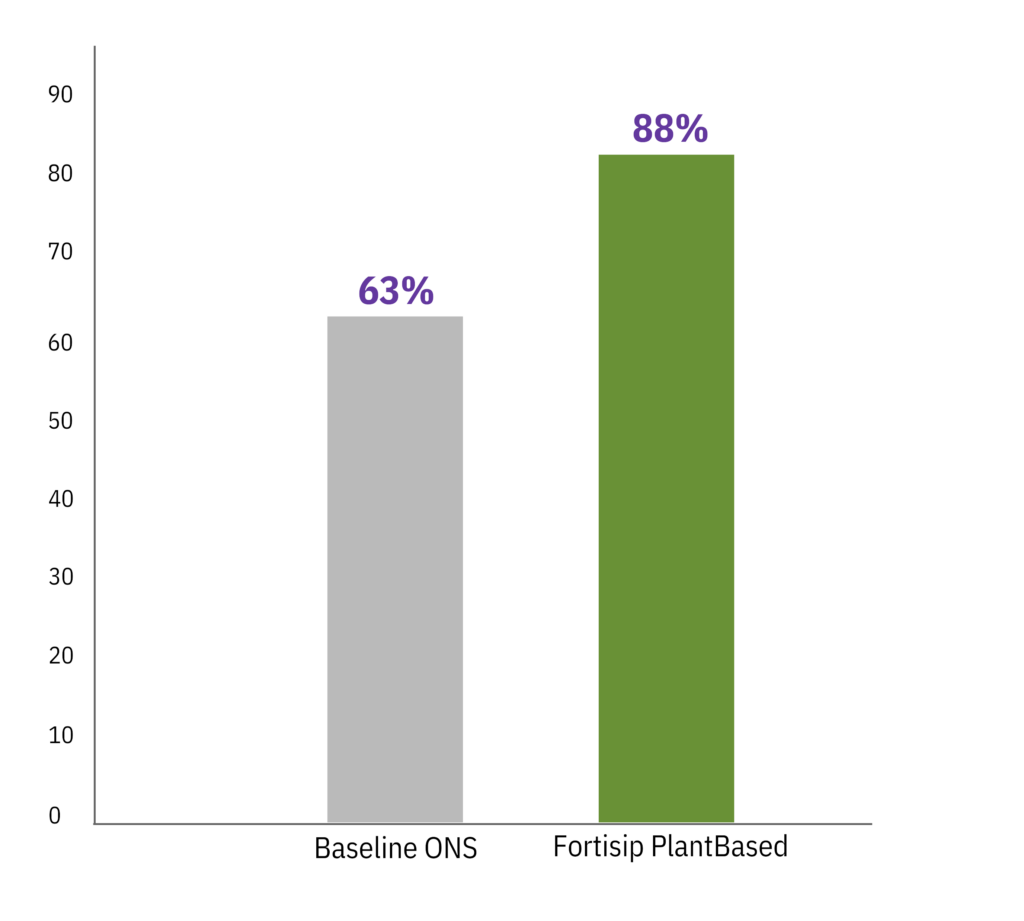Empowering Oncology Care: Clinical Evidence for Improving Patient Outcomes
Food alone is often insufficient to cover all your cancer patients’ nutritional needs 1-2

ESPEN recognises the importance of supplementing food with medical nutrition as an integral part of cancer care.**2 Dietary challenges such as appetite decline and reduced protein intake, and lifestyle choices, such as a plant-based diet, and sensory issues may impact nutritional intake and overall health. 3-10

Appetite decline

Sensory issues

Reduced protein intake

Plant-based lifestyle
Help maximise cancer treatment with the right medical nutrition
Help maximise cancer treatment with the right medical nutrition

Cancer-related malnutrition
Fortisip Compact Protein our low volume, high protein formula enabled patients with cancer to meet ESPEN recommended protein intake. 6
For the dietary management of patients with or at risk of disease related malnutrition
Cancer-related malnutrition and taste alterations
Fortisip Compact Protein Sensations, our compact high protein formula with sensory-adapted flavours has been validated as ‘liked by patients’ undergoing cancer treatment11 and provides a cool or warm taste sensation.

92-94% liked
Cool Red Fruit

65-69% liked
Hot Tropical Ginger
For the dietary management of disease related malnutrition.
Cancer-related malnutrition and dairy alternative
Fortisip Compact Protein Sensations, our compact high protein formula with sensory-adapted flavours has been validated as ‘liked by patients’ undergoing cancer treatment11 and provides a cool or warm taste sensation.

Fortisip PlantBased our unique vegan formula is a high-quality blend of pea and soy protein that achieved greater compliance than baseline~ Prescribed ONS 12 and is suitable as a sole Plant-based source of nutrition.#
For the dietary management of patients with or at risk of disease related malnutrition due to cancer, chronic catabolic disease or cachexia.
Download our Empowering Oncology Care booklet for summaries of the latest clinical evidence to improve patient outcomes.
Fortisip products are food for special medical purposes and must be used under medical supervision.
^Compared to healthy adults, whose protein requirements is 0.84 g/kg/day, adults with cancer are recommended to have >1.2g/kg/day and up to 2g/kg/day.
** According to ESPEN guidelines, the additional use of ONS is advised when an enriched diet is not effective in reaching nutritional goals. Medical nutrition is indicated if patients are unable to eat adequately (e.g. less than 50% of the requirement for more than one week or only 50–75% of the requirement for more than two weeks).
~ Prior to commencing the study patients (n=8) were taking a different oral nutritional supplement.
#In accordance with Australia New Zealand Food Standards Code – Standard 2.9.5.
Caccialanza R, et al. Supp Care in Cancer Jul 2022.
Muscaritoli M, et al. Oncotarget Advance Publications. Aug 2017;1-13.
Data on file: IPSOS, Nutrition in Cancer Care survey. 2023.
Arends J, et al. ESMO Open. 2021;6(3):100092.
Arends J, et al. Clin Nutr. 2017;36(1):11-48.
Dingemans AM, et al. Nutrients. 2023;15(24):5030.
Spotten LE, et al. Ann Oncol. 2017;28(5):969-984
Brisbois TD, et al. J Pain Symptom Manae. 2011;41:673-83.
Plant Based Eating. CHOICE 2021.
Understanding the New Asian Consumer. PwC, Rabobank and Temasek 2020. Available at: The Asia Food Challenge 2021 (pwc.co.nz) (Accessed September 2023).
de Haan JJ, et al. Support Care Cancer. 2021;29:5691-9.
Nutricia UK ACBS trial, data on file 2022.
